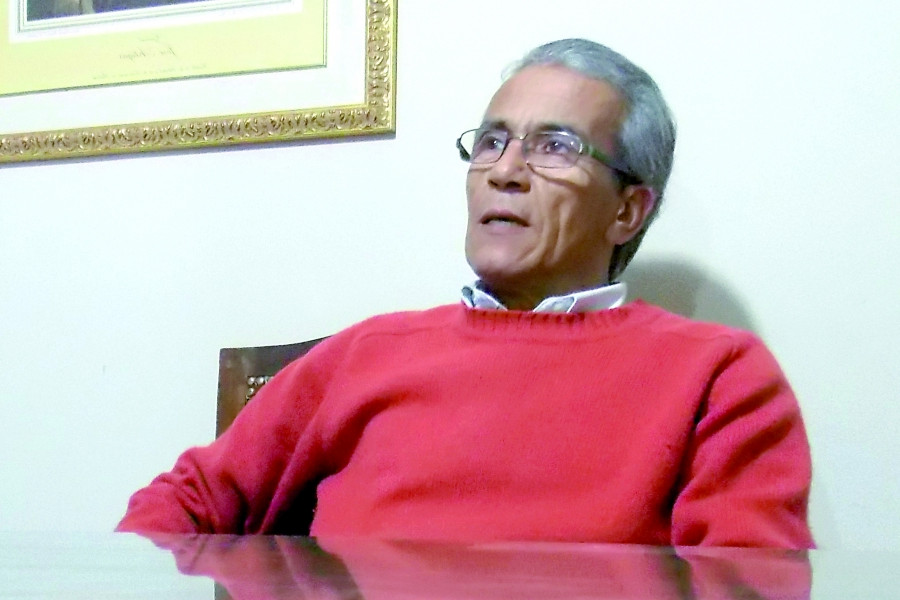“It is an issue that must be established,” said the vice president of the union confederation, after meeting with the future Minister of Labor, who in turn cited the case of several countries that advanced along this line.
The Pit-Cnt once again proposed reducing the working day and proposes moving towards the objective of 40 hours of work per week. This was stated in a document that the Executive Secretariat of the union central delivered this Monday to the future Minister of Labor and Social Security, Juan Castillo, who is inclined to study the matter. This, in turn, is viewed with suspicion by the employer sector, which does not want a general legislative solution.
“It is an issue that must be established,” said the vice president of the Pit-Cnt, Joselo López, participant in the morning meeting with the future minister. López pointed out that there is a lot of disparity between sectors of public and private activity and considered that it is necessary to move forward gradually and with pilot plans to “uniform”, without harming workers and employers. “It is something that we already raised with the current government and there was even some proposal in the Republican Coalition of leaders like Tabaré Viera. “It is an issue that has to do with the health of workers,” says the leader. The reduction, he added, “must be sustainable over time.”
After meeting with the Confederation of Business Chambers, Castillo said he was willing to study the issue and reviewed that legislation has recently been approved that aims to reduce the working day in Spain, Colombia and Chile. For their part, countries like Mexico are discussing it. “The graph that grows the most is that of unemployment in the world, the destruction of jobs. What cannot be done is to decree” the eventual reduction, assured the future minister. He added that there are already “six, seven sectors” that have reduced the working day from 48 hours a week, taking it in some cases to 42 and in others, to 6 hours a day.
The business view
The employer sector is cautious. Diego O’Neill, president of the confederation, commented that he does not think “a general solution” is convenient in today’s Uruguay. He admits that “some sector could advance” in reducing the working day, but that in any case, it is something to process in the field of collective bargaining. “In Uruguay there are 210,000 companies and 180,000 are micro. They have less than 5 employees, 20,000 have less than 20 and it will surely be difficult for them to adapt.” A previous step, the businessman said, would be to have an institutional environment that measures productivity and provides good information in this regard (which is lacking today).
In August 2024, the union center had already presented a proposal to reduce the work week to 40 hours. The total number of employees in 2023 amounted to 1,211,000, of which 523,000 worked more than 40 hours per week. Within this group, 267,000 people worked less than 48 hours, while 158,000 worked 48 hours and 98,000 had a work regime that exceeded 48 hours a week.
According to data from the National Institute of Statistics, the average effective working day in 2023 in Uruguay was 39.6 hours per week. The union confederation understands that the legal Uruguayan working day is one of the longest in the world. “Working time and the length of the working day, together with salary, are among the most important conditions of employment for workers and this affects people’s physical and mental health, safety at work and the possibility of carry out activities outside the workplace,” says the document presented in August.
Castillo confirmed that it is the intention of the incoming government to convene “as soon as possible” a forum for social dialogue on social security, according to López. In turn, the union center told Castillo that the application of collective bargaining rules must be “much more forceful” in the public sector because many times, the resolution of conflicts comes through “informal negotiations.”
State policies
From the perspective of the union movement, the world of work has experienced significant changes due to the technological revolution, automation, artificial intelligence and technology 4.0. “Uruguay still lacks State policies that address these processes, not only in the framework of productivity, but also in the reconversion of workers and the need to place human beings at the center, prioritizing their well-being and lifespan” said Mendez.
He criticizes the capitalist logic that, despite economic growth, has resulted in a greater concentration of wealth and increased inequality. “In our country, this growth has been absorbed by fewer bank accounts and has not reached the pockets of workers. In the dairy industry, for example, where Conaprole is the main exporter and a globally competitive cooperative, increasing profit rates continues to be prioritized at the expense of small and medium-sized distribution entrepreneurs. This makes the discussion about reducing the working day and how productivity should benefit workers even more urgent,” he stated.
The whys
-Why do you want to reduce the working day?
-Economists from the Costa Duarte Institute suggest that the reduction of the working day in Uruguay is a human and economic issue. On the one hand, it represents the opportunity to improve the quality of life of workers. On the other hand, a possible increase in productivity is at stake.
-What is the objective of reducing the working day?
-The decrease in the maximum working day implies an increase in the value of the daily hour since, for less time worked, the worker will continue to earn the same remuneration.
-What benefits does the reduction of working hours bring?
-Although working time decreases, reducing the working day can increase the productivity of employees, as it allows them to maintain a balance between their work and personal life, reducing fatigue and stress and improving concentration.


















